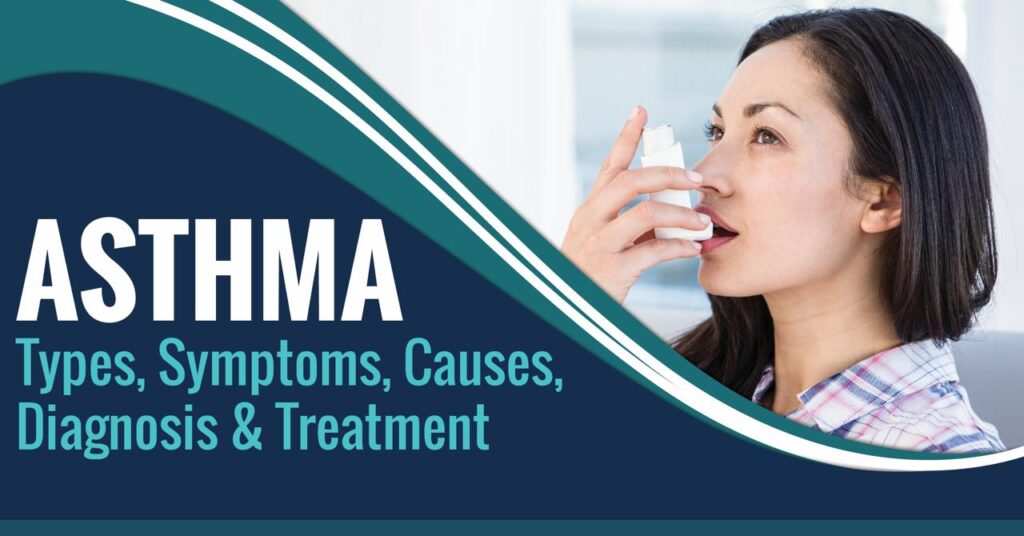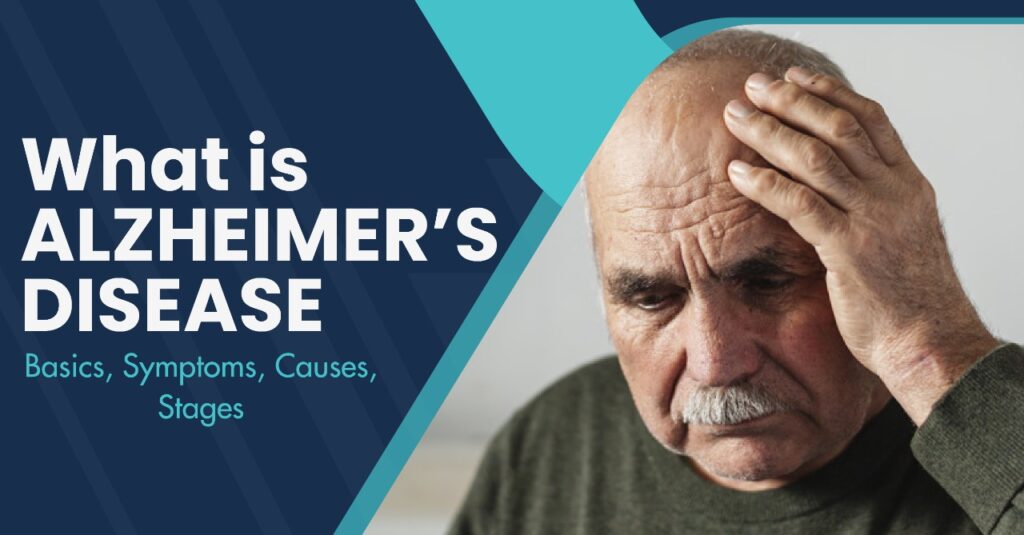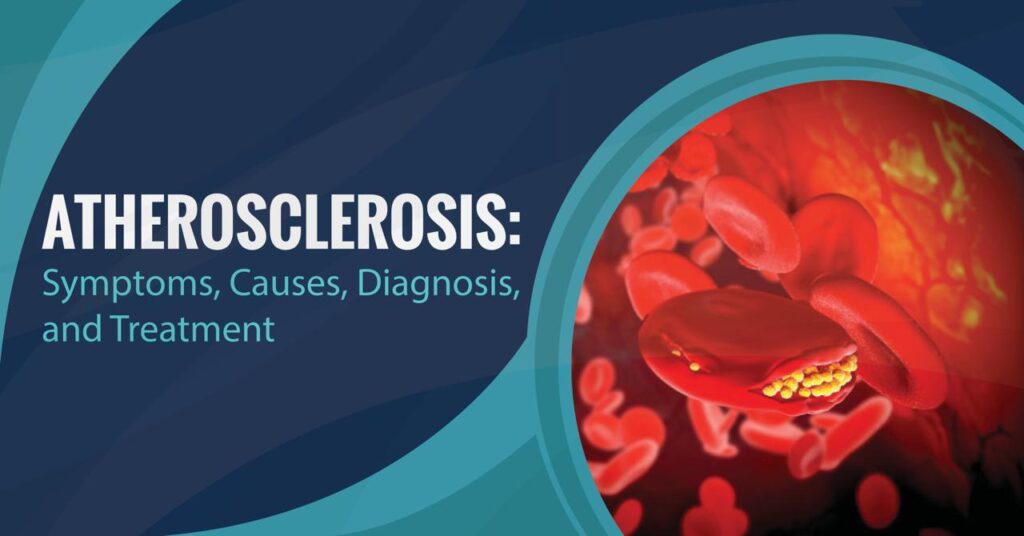Asthma is a common disease in which a person faces some difficulty in breathing. It can usually be managed with rescue inhalers that clear the airways of breathing so that a person can breathe properly.
What is Asthma?
Asthma is a chronic condition that affects the airways and creates difficulty in breathing. It causes swollen airways and wheezing and can make people hard to breathe. Many triggers of asthma include exposure to an allergen or irritant, exercise, viruses, emotional stress, and various other factors.
Asthma attacks can make the walls of the airways, or the bronchial tubes, become swollen and inflamed. In an asthma attack, the airways of the lungs will swell, the muscles around the airways will tighten, and it becomes difficult for the air to move in and out of the lungs.
An asthma attack mostly begins when the symptoms of asthma become more severe. Asthma attacks can start suddenly and range from mild to high or life-threatening.
In some cases, swelling in the airways can prevent oxygen from reaching out the lungs. This means that oxygen cannot enter the bloodstream and reach through the vital organs. Therefore, people that experience severe symptoms need urgent medical attention.
A person with asthma may experience some symptoms like:
- tightness in the chest
- wheezing
- breathlessness
- coughing
- increased mucus production
Types of Asthma
Asthma occurs in different types. Different types of asthma are classified by the time when attacks occur.
- Intermittent asthma: In most people symptoms of asthma occur between intervening symptom-free periods. In some cases, the asthmatic symptoms resolve spontaneously. The symptom-free periods are usually quite long.
In such patients, viral infections of the respiratory tract like those which cause the cold are a common trigger of asthma symptoms. This is often very true in small children between 2-5 years of age who may get 8-12 viral colds and coughs a year.
- Seasonal allergic asthma: Seasonal allergic asthma is all about seasonal changes and has been observed in response to the seasonal release of allergens such as pollens that occur in the environment.
Mold spores are another common reason behind seasonal asthma. It’s important to know how your local climate and air allergen levels vary from season to season to determine whether you have this kind of asthma and prevent it by appropriate measures.
- Non-seasonal allergic asthma: In this case, exposure to cold or dry air, dust, pet hair, or pollen may set off an acute attack of asthma. additionally, there’s another kind of allergic asthma in which the asthma triggers aren’t associated with the season, but could also be due to a hyper-reaction of the airway mucosa to things that aren’t typically allergenic.
These include viruses, air pollutants or irritants like tobacco smoke or paint fumes, changes in the weather, heavy exercise, and certain chemicals in food or drugs.
- Exercise-induced bronchoconstriction (EIB): This term of asthma is used when a bout of exercise is followed by a narrowing of the airways. It may be found in up to 80% of individuals with asthma.
However, not all cases of Exercise-induced bronchoconstriction are found in asthma patients. It’s thought to be caused by the dehydration and/or heating up that happens with strenuous physical activity in a dry climate. In children with asthma, it’s often the first symptom to develop.
- Occupational asthma: In this form, the symptoms are worsened by chemical irritants or dust in the air. Pre-existing asthma can also lead to worse with such exposure to chemicals.
Related to the nature of an asthma patient may include the time of earliest symptoms coinciding with a change of workplace, an improvement in symptoms due to leaving the workplace, and the occurrence of breathing difficulty due to workplace chemicals. There are more than 250 occupational asthma triggers or promoters.
- Chronic asthma: It is also called persistent asthma, this condition is defined by daily symptoms or those which recur several times in a week. The intensity of symptoms may be quite variable, but there are not any long periods without symptoms.
You Can Read Also: What Is Atherosclerosis?
Acute chronic exacerbations may supervene at a time upon the chronic course of the disease. These could also be traced in some cases to seasonal increases in air allergens or viral pathogens that provoke airway inflammation.
- Adult-onset asthma: Most of the cases of asthma begin in childhood, but in many patients, the primary symptoms appear only in their adult life. Many people were not exposed to potential triggers for their asthma until they became adults.
For instance, they’re exposed to a house pet when their roommate brings one home, or they start to work in an environment containing chemical fumes, that trigger their latent hypersensitivity. It could even be a viral infection that triggers an asthmatic reaction for the first time in adulthood.
What are the symptoms of asthma?
The common symptoms of Asthma are:
- Wheezing, a whistling sound created while you breathe
- Coughing, especially at nights or during exercise
- Increased mucus production
- Pain or pressure
- Losing sleep
- Tightness in the chest
- Shortness of breath
- Difficulty talking
- Anxiousness or panic
- Fatigue
What causes asthma?
The exact cause of asthma is not known. Healthcare providers do not know the cause of asthma in some people while others don’t. But certain factors show a higher risk.
- Allergies: Having certain allergies can increase the risk of developing asthma.
- Environmental factors: Infants can develop asthma after inhaling the things that irritate the airways. These substances include allergens, smoke, and a few viral infections. They will harm infants and young children whose immune systems haven’t finished developing or whose immune system is weak.
- Genetics: People with a family history of asthma will have a higher risk of the disease.
- Respiratory infections: Various respiratory infections, such as a respiratory syncytial virus (RSV), Common cold may damage young children’s lungs.
- Physical activity.
- Strong emotions and stress.
- Certain medications, including aspirin, beta-blockers, and nonsteroidal anti-inflammatory drugs, such as ibuprofen and naproxen sodium.
- Sulfites and other preservatives are added to various types of foods and beverages, including shrimp, dried fruit, processed potatoes, wine, and beer.
Risk Factors of Asthma
Various factors are included to increase the chances of developing asthma. These are:
- Having a blood relation with asthma, like a parent or with siblings
- Having another allergic condition, like atopic dermatitis which causes red, itchy skin, or hay fever that causes a runny nose, congestion, and itchy eyes
- Being overweight
- Being a smoker
- Exposure to secondhand smoke
- Exposure to fumes or other kinds of pollution
- Exposure to chemical triggers, like chemicals used in farming, hairdressing, and manufacturing
How is asthma diagnosed?
The doctors will use some tests to diagnose asthma. Some tests show how well your lungs work. Others can tell if you’re allergic to pollen, mold, or other things.
All of these asthma tests help your doctor decide if you have asthma and other conditions that usually come with it, like allergies, GERD, and sinusitis.
Physical Exam:
You need to undergo some physical exam tests to diagnose asthma.
- Look at your nose, throat, and upper airways if there are any kinds of swelling or other complications.
- They use a stethoscope to listen for a whistling sound when you breathe.
- They will check your skin for allergy symptoms like eczema or hives.
Medical History:
Your doctor will ask a few questions to understand your symptoms and their causes. Be ready to answer questions on your family history, the medicines you’re taking, and your lifestyle. This includes any current physical problems related to your health. Shortness of breath, coughing, wheezing, and tightness in your chest may show asthma.
This also includes all previous medical conditions. A family history of allergies or eczema may increase your chance of getting asthma. A case history of asthma, allergies, or eczema increases your chance of getting asthma, too. Tell your doctor about everything, home or work exposure to environmental factors that may worsen asthma.
For example, these might include pollen, pet dander, dust mites, and tobacco smoke. The doctor can also ask if you get chest symptoms when you get a common cold.
Lung Function Tests:
To diagnose asthma, doctors may prescribe you to take one or more breathing tests known as lung function tests. These tests measure breathing. Lung function tests are often done before and after taking a medication called a bronchodilator to open your airways, such as albuterol.
- Spirometry: This test estimates the narrowing of your airways by checking what proportion of air you can exhale after a deep breath and how fast you can breathe out.
- Peak flow: A peak flow meter is a simple device that measures how hard you can exhale. less than usual peak flow readings are a sign that your lungs might not be working as well and that your asthma may be getting worse. Your doctor will provide you with instructions on tracking and dealing with low peak flow readings.
Additional tests:
Some other tests to diagnose asthma.
- Methacholine challenge: It is known as asthma triggers. When inhaled, it will cause your airways to narrow down. If you react to the methacholine, you will likely have asthma.
- Imaging tests: In this, a chest X-ray helps identify any structural abnormalities or diseases that cause problems in breathing.
- Allergy testing: It can be performed by a skin or blood test. If allergy triggers are identified in the test, your doctor may recommend allergy shots.
- Nitric oxide test: This is used to measure the amount of the gas nitric oxide in your breath.
- Sputum eosinophils: This is a test that looks for white blood cells in the mixture of saliva and mucus you discharge during coughing. White blood cells or eosinophils are present when symptoms develop and become visible when stained in a rose-colored dye.
- Provocative testing: This test will measure your airway obstruction before and after you perform any physical activity.
How is asthma treated?
There is generally no cure for asthma but various methods are available to treat or control asthma for the long term these are:
The most important ones for asthma are inhalers, they are also called lifesavers for asthma patients. Inhalers are the devices that let you breathe.
- Inhalers: Inhalers can help to relieve symptoms when they occur, or can stop symptoms from developing.
- Reliever inhalers: Most people with asthma are going to be given a reliever inhaler. you use a reliever inhaler to treat your symptoms once they occur. they should relieve your symptoms within a couple of minutes.
- Preventer inhalers: If you need to use a reliever inhaler often, you’ll also need a preventer inhaler. you use a preventer inhaler daily to reduce the inflammation and sensitivity of your airways, which stops your symptoms from occurring. it is vital to use it even when you don’t have symptoms.
You Can Read Also: WHAT IS ARTHRITIS?
- Combination inhalers: Usage of reliever and preventer inhalers does not control your asthma, you may need an inhaler that combines both. Combination inhalers are used every day to help to stop symptoms from occurring and give long-lasting relief if they occur.
- Medications or Tablets: If inhalers are not working then you may use the tablets with the inhalers.
- Leukotriene receptor antagonists (LTRAs): These are the main tablets used in the treatment of asthma. They also come in syrup and powder form. You take them every day to help you to stop your symptoms from occurring.
- Theophylline: These tablets are used when other treatments are not helping to control your symptoms. It is prescribed to take every day.
- Steroid tablets: Steroid tablets are used when other treatments and tablets do not work.
- Other treatments: Other treatments may use if any of these medications are not working.
- Injections: The main injections for asthma are:
- bevacizumab (Fasenra)
- omalizumab (Xolair)
- mepolizumab (Nucala)
- reslizumab (Cinqaero)
These medicines are referred to as biologic therapies. They’re not suitable for everyone with asthma and may only be prescribed by an asthma specialist.
- Surgery: A bronchial thermoplasty is offered as a treatment for severe asthma.
- Complementary therapies: Several therapies are suggested for the treatment of asthma.
- breathing exercise
- traditional Chinese herbal medicine
- acupuncture
- ionizers
- manual therapies
- homeopathy
Can asthma be prevented?
Well, there is no way to prevent asthma, but some prevention can control the occurrence of asthma.
- Follow your asthma action plan.
- Get vaccinated for influenza and pneumonia.
- Identify and avoid asthma triggers.
- Monitor your breathing.
- Identify and treat attacks early.
- Take your medication as prescribed.
- Pay attention to increasing quick-relief inhaler use.
What are the complications of asthma?
For most people with asthma, medicines can control the disease and stop occurring serious problems. However, this isn’t always the same case for people with severe asthma. Severe asthma generally means asthma that’s resistant to treatment. Those people whose having severe asthma typically use a high-dose inhaled corticosteroid plus another long-term control medicine. Despite this, their asthma remains difficult to regulate. Here are some severe asthma complications.
- Severe asthma symptoms can disrupt daily life.
- Severe asthma can disrupt sleep.
- Severe asthma can lead you to visits the emergency room and hospitalizations.









